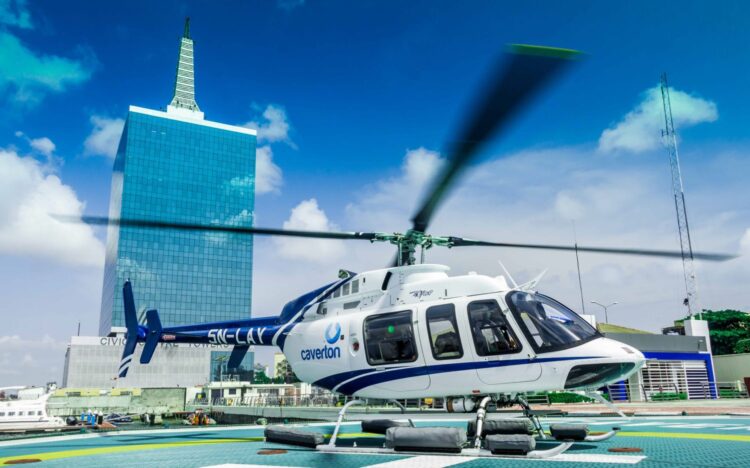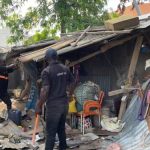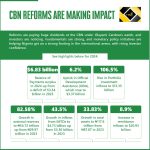...To get all news updates, Join our WhatsApp Group (Click Here)
Also Join our WhatsApp Channel (Click Here)
Caverton Group boasts of being Nigeria’s leading provider of aviation, marine, and logistics services to local and international oil and gas companies in Nigeria. On paper it can be easily assumed that the business is going well when oil and gas firms perform well and poorly when oil and gas firms struggle. However, recent results show that is not the case in reality.
The company recently released its 2021 FY results revealing it recorded a whopping loss after tax of N4.3 billion compared to a profit after tax of N1.1 billion in 2020 which ironically was a Covid-19 year. That year, the result was a 74% drop from the N4.3 billion profit reported in 2019 which was its best year yet. Well, 2021 has now seen things go from bad to worse with its worst result in at least 5 years. So, what happened?
According to the company, the loss was due to the impact of the “Covid-19 pandemic” and other factors which it claims had “negatively impacted business operations in Nigeria and the rest of the world” thus leading to the losses. As they say, the devil is in the details. A cursory review of the company’s financial statement reveals the losses were due to a spike in its cost of sales, the direct cost of doing business.
More specifically, in 2021 consumables gulped N12.2 billion out of the N24 billion incurred in total cost of sales compared to 2020 with N6.4 billion and N18.5 billion, respectively. Consumables the company explains include aircraft spare parts, aviation fuels, freight and courier services protocol and immigrations etc. Another cost component that recorded a rise were foreign exchange losses and higher finance cost adding N8.5 billion to finance cost compared to just N6.3 billion a year earlier
Unfortunately, it could not pass on this cost to its customers most of whom may have locked in price by paying for service upfront. Revenues topped N34 billion just N2.6 billion higher than a year earlier. This was not enough to cushion the spike in expenses. The worst hit was its core business, Helicopter Services where it lost N5.8 billion.
Despite this challenge, Calverton still had a healthy cash pile of about N5.7 billion helped by a net loan increase of about N11 billion. Over 90% of the bank’s N31 billion loans were borrowed in foreign currency further posing a headwind for operational cost. If the exchange rate situation in the country gets worse this year or even remains as is, the company might take N4-5 billion hit on foreign currency losses. It will point to its revenue being charged in dollars but that is not enough. So, what can management do?
The solutions we see here are two-pronged. One is to immediately raise revenues to levels that can accommodate the rising cost of doing business. This will involve raising prices and increasing orders. It will have to hope that oil and gas companies use more of its helicopters at a higher cost than they ordinarily did. It might also need to look at other customers beyond the oil and gas sector. It is the election season and politicians will want to move from one destination to another as campaign picks up. However, the company seems to be looking in another direction. Here is what its CEO Mr, Bode Makaonjuola said:
“To further boost revenues, the Group has been exploring further opportunities within and outside the oil and gas sector. In addition to growing our market share in the oil and gas logistics sector, our primary focus for the year will be on third party training and maintenance. Our Maintenance Repair and Overhaul (MRO) facility and our Caverton Aviation Training Centre (CATC), both in Lagos, officially commenced business operation in the 2nd half of 2021. Prospects for training and maintenance is extremely positive as we are in advanced contract negotiations with a number of government and private institutions across sub–Saharan Africa.”
It will be interesting to see what these business segments add to revenues in the first quarter of this year. The second thing the company must do is raise capital. Currently, total debt of about N31 billion (without adding leases) is almost twice its total equity of N17.3 billion. Its free cash flow of N4.6 billion will not be enough, so sooner rather than later that loan will have to be repaid and it will have to come from fresh equity.
These are not easy actions, but it appears time is running out. If it does not take urgent action, the situation might not stop worsening.
Nairametrics
You can get every of our news as soon as they drop on WhatsApp ...To get all news updates, Join our WhatsApp Group (Click Here)
Also Join our WhatsApp Channel (Click Here)

















